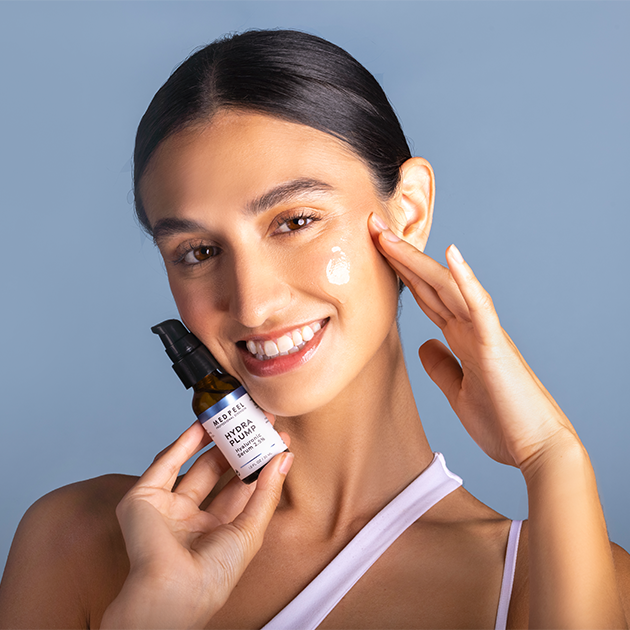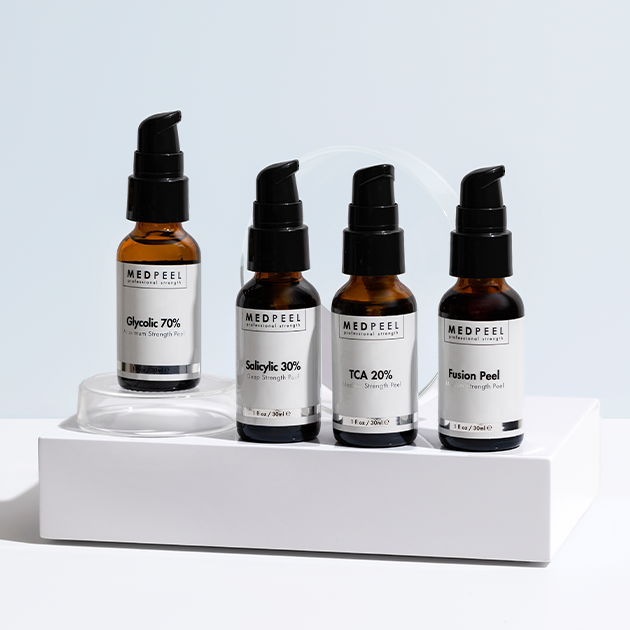What is ‘Chemical Peel Season’ and when is it?
How do I prepare for a chemical peel?
Preparing for a chemical peel involves several steps to ensure that your skin is in the best condition possible and to minimize potential complications. Here are some general guidelines to follow when preparing for a chemical peel:
1. Assess Your Skin: Take our online quiz, chat with a Medpeel associate, or speak to your local skincare professional to help determine your skin type, concerns, and get recommendations for the appropriate type and strength of chemical peel for your specific needs.
2. Skincare Routine: Prior to the peel, establish a good skincare routine that includes gentle cleansing, moisturizing, and sun protection. This helps to ensure that your skin is healthy and adequately hydrated before the treatment.
3. Avoid Sun Exposure: It is important to avoid excessive sun exposure before the peel. Protect your skin by wearing sunscreen with a high SPF (at least 30) and using protective clothing when you are outside.
4. Discontinue Exfoliation: Stop using any exfoliating products, such as scrubs or acids, a few days before the peel. These can increase skin sensitivity and may interfere with the chemical peel process.
5. Avoid Waxing or Depilatory Creams: Refrain from waxing or using depilatory (hair removal) creams on the treatment area for at least a week before the chemical peel. These hair removal methods can cause skin irritation and increase sensitivity.
6. Medications and Topical Products: If you are taking any medications, such as retinoids or antibiotics, consult with your doctor before undergoing a peel treatment, as these can affect the peel process. They may ask you to discontinue certain medications or adjust your skincare routine accordingly.
7. Patch Test: If you are using a peel product or if you have particularly sensitive skin, consider conducting a patch test on a small area of skin before the full treatment. This helps to check for any adverse reactions or allergies.
8. Follow Instructions: Follow the provided pre- and post-peel instructions carefully. This may include specific guidelines on cleansing, avoiding certain products, or any additional steps to prepare your skin.



